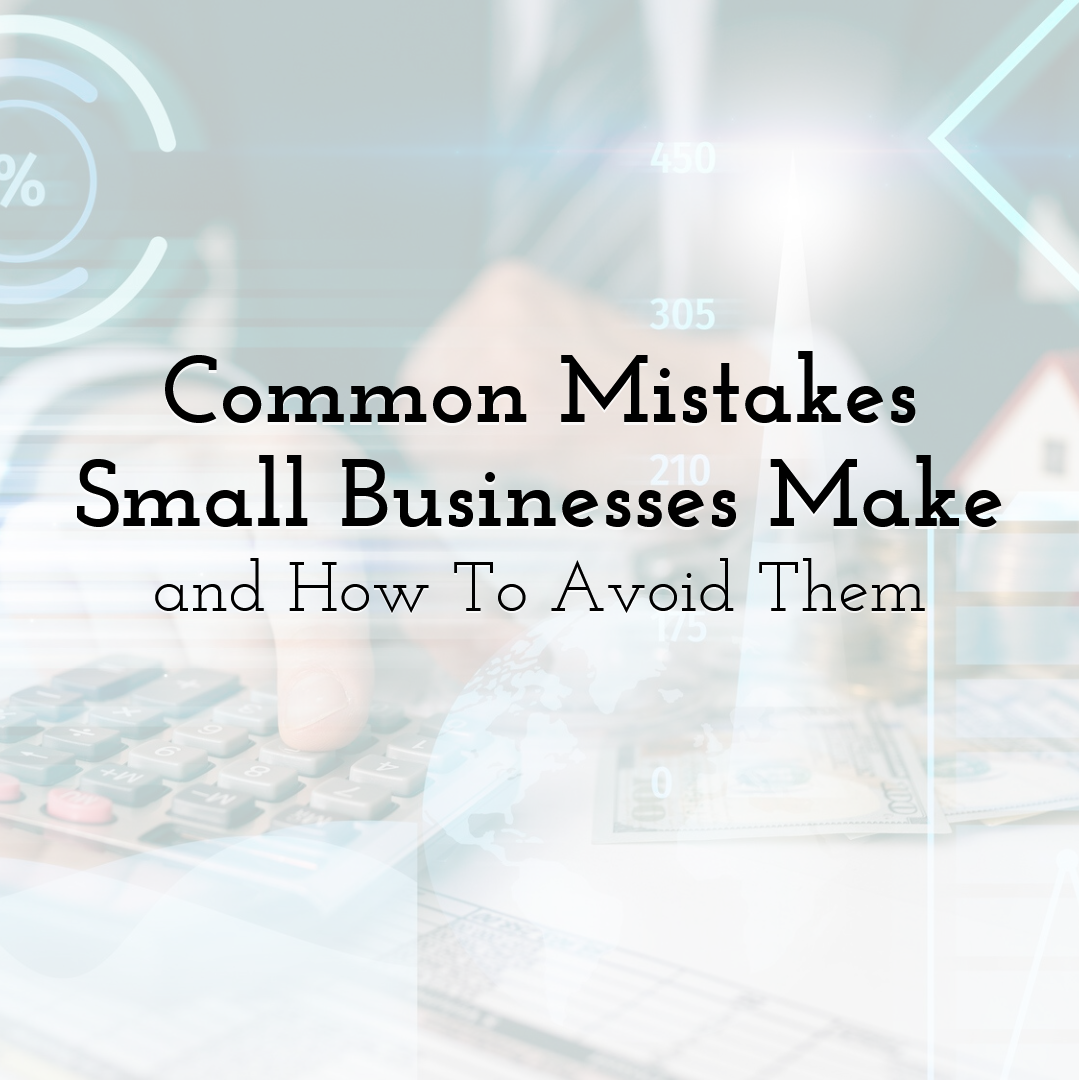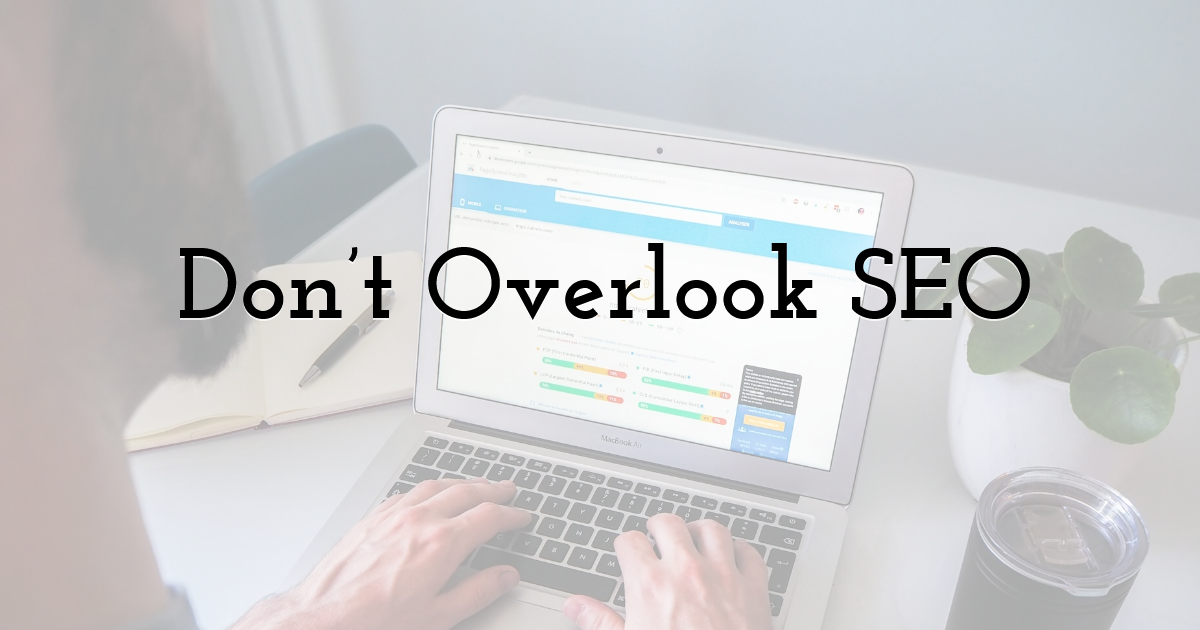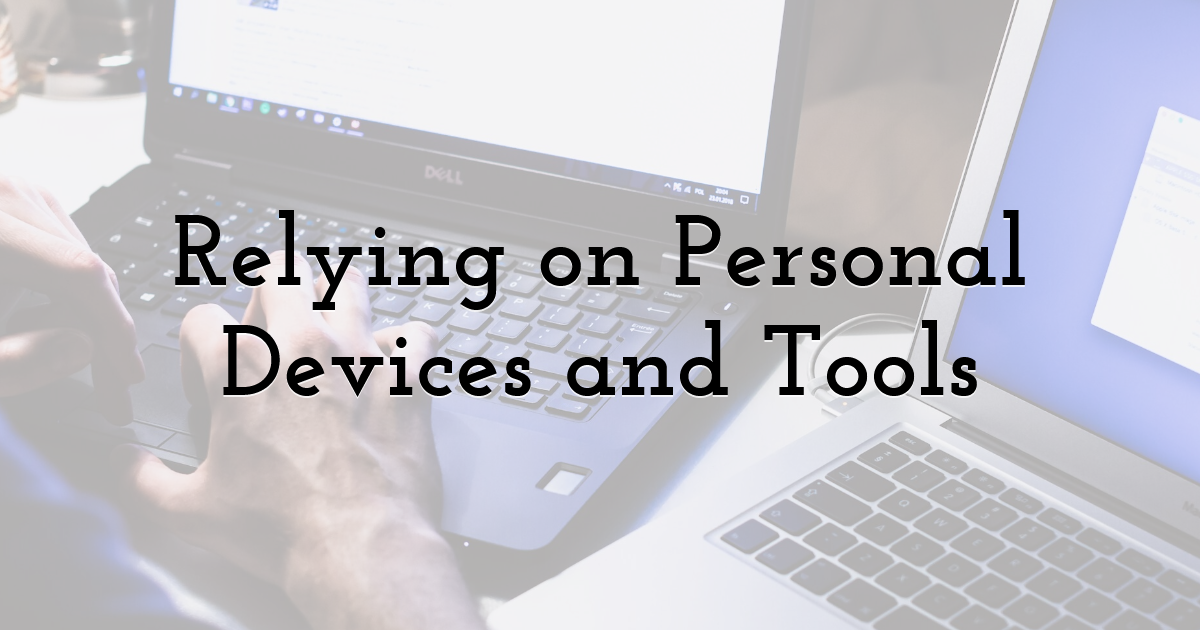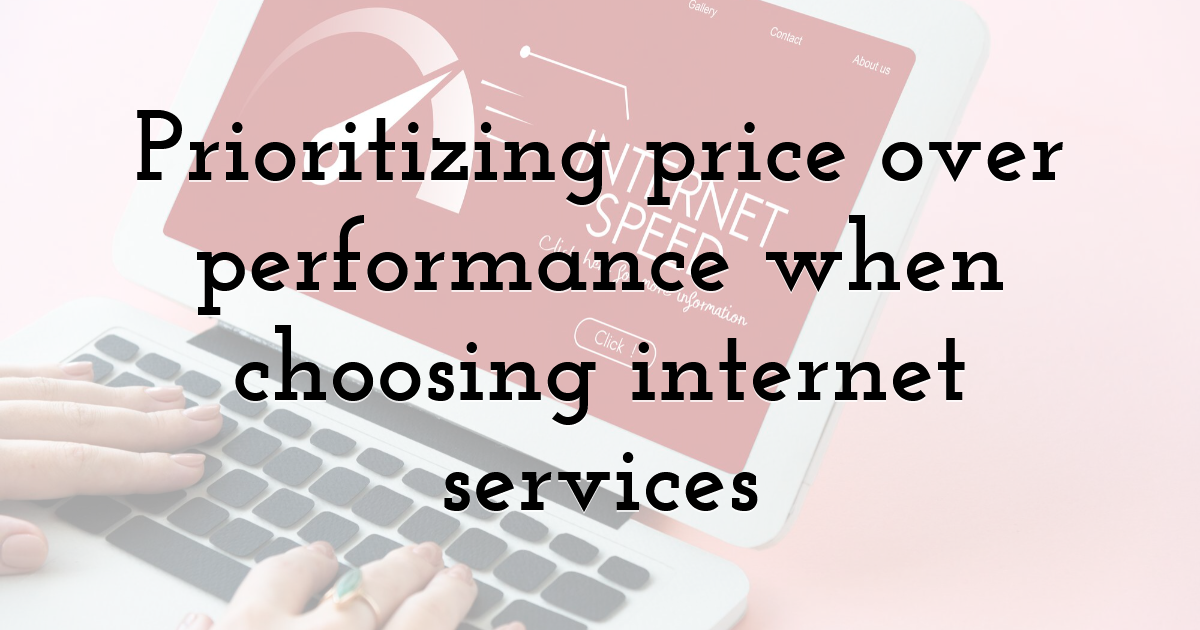Common Mistakes Small Businesses Make and How To Avoid Them

Many small businesses focus on moving fast and getting things done, but some steps are easy to miss along the way. Paying attention to a few key areas can make a big difference as you grow. It’s helpful to know what others often overlook so you can stay on track.
Here are some common mistakes to be aware of and how to avoid them.
1. Poor Financial Management

Poor financial management is a common reason small businesses struggle.
Focusing on products or customers is important, but ignoring finances can quietly lead to cash flow problems and unexpected expenses that put the business at risk.
Where Things Go Wrong
- • No clear budget: Without a structured budget, it’s easy to overspend on non-essential areas while underfunding what’s actually necessary for growth
- • Cash flow blind spots: Sales alone don’t guarantee available cash when bills are due. Without close monitoring, businesses can fall short on critical payments like payroll or suppliers.
- • Mixing personal and business finances: Using the same accounts for personal and business expenses leads to messy records, tax complications, and a lack of financial clarity.
- • Avoiding financial data: Skipping regular reviews of financial statements leaves you unaware of potential issues and trends that could impact your bottom line.
- • Poor pricing strategy: Underpricing to stay competitive may seem like a quick win, but it often erodes profits and makes long-term growth difficult.
How To Avoid It
- • Develop and maintain a budget: A clear, realistic budget guides spending decisions and helps you allocate resources effectively.
- • Track cash flow consistently: Weekly check-ins on cash inflows and outflows can prevent sudden shortfalls and keep operations smooth.
- • Separate business and personal finances: Having dedicated business accounts keeps your records clean and makes accounting and taxes much simpler.
- • Regularly review financial reports: Profit and loss statements, balance sheets, and cash flow reports provide valuable insights — don’t ignore them.
- • Set pricing with strategy: Base your prices on actual costs, market conditions, and the value of your time and expertise to ensure profitability.
Don’t Overlook Everyday Expenses
Regardless of whether your business operates online, in a physical space, or as a hybrid, everyday operational costs can quietly eat into your budget if you’re not paying attention.
For office-based businesses, equipment like printers, scanners, and the cost of cartridges and paper are easy to overlook. A reliable, business-grade scanner, such as the Ricoh ScanSnap iX1600, can save time and reduce frustration. Cheaper models may seem appealing but often suffer from jams, slow performance, or frequent repairs.
If you print often, a laser printer is usually more efficient and cost-effective than an inkjet. It’s also smarter to buy original toner in multipacks, like the HP 508X set, instead of individual cartridges, as multipacks are typically discounted and last longer.
For online businesses, while you might not need printing equipment, you’ll still have recurring costs like software subscriptions, cloud storage, premium email services, or upgraded hardware such as high-performance laptops or webcams — especially if your business involves virtual meetings or content creation.
2. Neglecting Marketing Efforts

Some businesses rely on just one marketing channel — like posting only on Instagram or sending occasional email newsletters. Limiting efforts to a single platform means you’re missing potential customers who engage elsewhere.
Others depend solely on referrals or word-of-mouth. While recommendations from happy customers are valuable, they aren’t always enough to sustain growth or reach new audiences consistently.
Another common mistake is inconsistency. Posting on social media only when you remember or sending sporadic emails doesn’t help build lasting awareness. Without a regular presence, people forget your brand, especially when competitors are showing up more frequently.
How To Avoid It
Create a Consistent, Multi-Channel Plan
Small businesses don’t need massive budgets to market effectively. What matters is having a clear, regular marketing plan that includes social media, email marketing, content creation, marketing solutions, and, if possible, some paid advertising. Start by identifying where your audience spends their time and tailor your efforts to those platforms.
A great example of consistent marketing is Coca-Cola. In their 2025 campaign "Enjoy the moment with a Coca-Cola" they targeted Gen Z with storytelling that encourages people to disconnect from digital distractions and enjoy real moments.
The campaign features short films, celebrity collaborations with Tyla and Lamine Yamal, interactive QR codes, and sweepstakes to keep audiences engaged. Coca-Cola shows that even a globally recognized brand must keep marketing fresh and continuous.
Stay Active and Track Results
Use free tools like Google Analytics to track your website traffic, customer behavior, and marketing performance. Small businesses can get clear insights without complex setups, making it easier to see what’s working.
You can also use Google Tag Manager if you need to manage multiple tracking codes such as for ads, conversions, or form submissions without having to change your website code directly.
3. Don’t Overlook SEO

Some businesses think that simply having a website is enough, but without SEO, your site may never appear in relevant search results. Others create content but ignore important SEO basics like using the right keywords, optimizing page speed, or improving mobile usability.
Another common mistake is not building backlinks — links from other websites to yours — which are a strong signal to search engines that your site is trustworthy and relevant. Without quality backlinks, even well-optimized content may struggle to rank.
How To Avoid It
Optimize Your Website
If your website is slow, difficult to use on a phone, or confusing to navigate, people will leave — and search engines pick up on that. Simple things like speeding up your site, making sure it looks good on mobile, and using clear menus can make a real difference.
Titles and headings should describe exactly what’s on each page. For instance, if you sell event merchandise, a title like “Custom Printed T-Shirts for Events” tells search engines — and visitors — what to expect, much better than just “Products.”
You can use Google Search Console to see how your site is performing in search and catch any technical issues like broken links or pages that aren’t being indexed properly.
Create Useful, Search-Friendly Content
Writing content that answers what people are actually searching for can improve your chances of showing up in search results. For example, if you run a coffee shop, a guide like “How to Brew the Perfect French Press Coffee at Home” can bring in readers who might later visit your store.
Google’s Helpful Content guidelines emphasize that content should be written for people, not just to rank on search engines. If you’re using AI tools to help generate drafts, it’s a good idea to edit the content, add your own insights, and ensure it reflects your brand’s voice.
You can also run your text through an AI detector to check if it still reads naturally and doesn’t feel overly machine-generated.
Build Quality Backlinks
To find good link opportunities, start by researching websites that are relevant to your industry or audience. Look for blogs, directories, or businesses that might be open to collaborations, guest posts, or resource links.
Before reaching out, it’s important to check whether these sites are active, well-designed, and credible — otherwise, the effort may not be worth it. You can speed up this research using an AI Prospecting Tool that helps evaluate websites in bulk, making it easier to identify quality sites worth your outreach efforts.
Once you have a quality list, tailor your outreach emails to show how linking to your content could benefit them. A thoughtful, personalized approach often gets better results than generic pitches.
If you prefer a more hands-off strategy, you can also use a link building platform like Elegant Mentions that specializes in securing high-quality backlinks through established relationships and targeted campaigns.
4. Relying on Personal Devices and Tools

Many small business owners manage their work on personal laptops, phones, and apps. While this can be convenient at first, it often leads to problems as the business expands.
- • Security risks: Personal devices typically lack the security features needed to protect business data. If the device is lost, hacked, or shared with others, sensitive information can be exposed.
- • Disorganization: When personal and business files, emails, and apps are mixed together, it’s easy for important documents to get lost or overlooked.
- • Unprofessional communication: Communicating with clients through personal email addresses or phone numbers can appear less professional and may impact your business’s credibility.
- • Limited scalability: Personal tools often don’t support the features or capacity needed to manage a growing business, such as team collaboration or advanced storage options.
- • Device performance issues: Over time, devices cluttered with both personal and business data can slow down, affecting productivity.
How To Avoid It
- • Set up dedicated business accounts: Use separate emails, cloud storage, and communication tools for business activities to stay organized and present a professional image.
- • Strengthen security: Protect business data with password managers such as 1Password or Bitwarden, and keep devices updated with the latest security measures.
- • Maintain device performance: Windows users can improve performance by using system cleaners that remove junk files and optimize speed. Mac users can do the same with a cleaning tool for Mac, which helps remove unnecessary files and keeps the system running efficiently.
- • Create separate work profiles or devices: Setting up a dedicated user profile for business activities keeps work data separate from personal files, reducing the risk of confusion.
- • Backup business data: Regular backups to cloud storage or external drives ensure your important files are safe from loss or damage.
Separating business from personal tools not only helps keep things organized but also protects your data and supports a more professional presence as your business grows.
5. Trying to Do Everything Alone

Handling every part of a business alone might seem practical at first, especially when resources are limited. But over time, it becomes harder to keep up with everything, making it difficult to focus on what truly drives growth.
Without support, tasks often pile up faster than you can manage. This can lead to missed opportunities, slower customer responses, and inconsistent marketing efforts. Important areas like financial tracking or strategic planning might get overlooked entirely. As the pressure builds, it becomes harder to move the business forward effectively.
How To Avoid It
- • Delegate or outsource: Look for help with tasks that don’t need your direct involvement, such as bookkeeping, marketing, or customer support. Platforms like Upwork or Freelancer can help you find skilled freelancers for one-off projects or ongoing support.
- • Use specialized tools: Instead of trying to do everything manually, explore tools designed for specific needs. For accounting, Xero or FreshBooks can simplify finances. For email marketing, Mailchimp or Brevo can help you stay in touch with customers consistently.
- • Join business communities: Engaging with other business owners through forums, local meetups, or online communities like Reddit’s r/smallbusiness can provide practical advice, resource sharing, and support when you need it.
6. Prioritizing price over performance when choosing internet services

In the digital age, it is critical for business owners to be aware of the benefits of choosing the best internet services they can afford. Low prices may be a draw when you enter search terms like internet services near me, but it’s beneficial to prioritize performance and value over cost. The cheapest options may seem like the best choice, but scrimping can be costly. If you have higher downtime rates, for example, this will impact your income and your reputation. Downtime leads to financial losses, but it also affects how customers perceive your brand. It also delays and disrupts work, whether you’re a solopreneur based at home or you manage a large, office-based team.
Steps to help you find the best services and providers include:
- • Carry out extensive research to identify top-rated internet providers
- • Tailor your search to suit your requirements and budget
- • Compare service packages
- • Read reviews and testimonials
- • Schedule calls and consultations to find out more about providers and the services they offer
- • Ask about additional features for businesses
- • Consider short and long-term costs and cost-savings
- • Weigh up the pros and cons of different options
- • Choose services that are relevant to your business objectives
Final Thoughts:
Running a small business today is not the same as it was a few years ago. Things keep changing, and it’s easy to fall into the same mistakes if you’re not keeping up. Staying informed and adjusting your approach can help you avoid these common pitfalls.
When you keep improving step by step, growth becomes more manageable, and your business stays on track.
Until next time, Be creative! - Pix'sTory
Recommended posts
-

Common Mistakes Small Businesses Make and How To Avoid Them
Read More › -

4 Ways to Use Pyramid Diagram in Your Business Presentation
Read More › -

Starting a Career in Designing? Use These Hacks to be a Professional
Read More › -

5 Mistakes in UX Writing that Ruin Customer Experience
Read More › -

The Curious Case of Dark Social Media and Why You Should Pay Attention To...
Read More › -

What Will the Digital Industry Look Like in the Post COVID-19 World?
Read More ›
